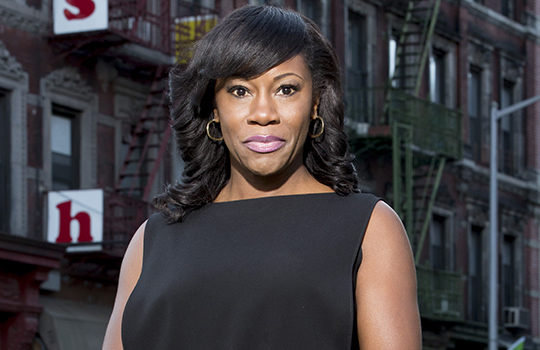Here’s How Tech Can Help Address The Black Maternal Health Crisis In The US

America is in the midst of a Black maternal health crisis, and according to the most recent data from the Centers for Disease Control and Prevention, in 2020, Black women in America are three times more likely to die from pregnancy-related complications than white women, a disparity the CDC attributes to factors including underlying chronic conditions, structural racism, and implicit bias.
There is a damning body of research showing how Black women and birthing people go unseen and unheard as they navigate the healthcare system with celebrities like Beyoncé and Serena Williams bringing attention to the risks of childbirth for Black mothers by sharing their own personal stories.
Given the concerning lack of diversity in the healthcare workforce, digital platforms can play a key role in connecting patients with providers who share their lived experiences.
Below is a list of founders and startups addressing these issues:
Melissa Hanna, co-founder and CEO of Mahmee
The web-based app launched in 2016 (with funding from Backstage Capital, among other investors) and now includes 1,800 participating providers in 45 states — OB-GYNs, pediatricians, lactation consultants, nutritionists, and more — who use the app to collaborate on care for Black mothers.

The HIPAA-compliant platform breaks down silos between providers, showing them a unique view of mother’s and baby’s medical records together. “A unified healthcare record showing your maternity journey in one place eliminates someone making assumptions or providing less than appropriate care,” Melissa says.
Mahmee also connects mothers to breastfeeding and mental health support, doula and midwifery care, and nutritional and wellness support
Kimberly Seals Allers, founder of Irth
The Irth team uses data from the app to develop hospital and practice strategies to improve outcomes and care experiences for mothers and their babies. “Amplifying these stories can be instructive to the hospitals and providers who need to do better,” Allers says.
Since 2019, Allers has raised nearly $1 million in foundation grants, and in 2021, Irth received $88,000 in prize funding as a winner in the Anti-Racist Technology in the US category of the MIT Solve Global Challenge, sponsored by HP and designed to elevate solutions to global challenges from tech-based social entrepreneurs.

“My vision is that Irth becomes our ‘Good Housekeeping seal of approval’ and a beacon of light for hospitals and providers we can trust,” says Allers.
Erica Chidi, co-founder and CEO of LOOM
When Erica Chidi, a trained doula, was first developing the idea for LOOM, a well-being educational platform focused on women’s reproductive health, she recognized the need to focus on Black women and the disproportionate challenges they face in getting the care they need.
Launched as a physical space in Los Angeles, LOOM transitioned to a digital platform in 2020 amid the pandemic. The platform offers educational resources and support related to pregnancy and postpartum care, including on-demand videos, audio conversations, guides, and live community support sessions, or Gather Groups, facilitated by LOOM experts.
LOOM also features content designed specifically for Black women, including guides like “Protecting Your Birth: A Guide for Black Mothers” and“Anti-Racist Prenatal and Postnatal Care Preferences,” a list that expecting mothers can proactively share with their care providers.



